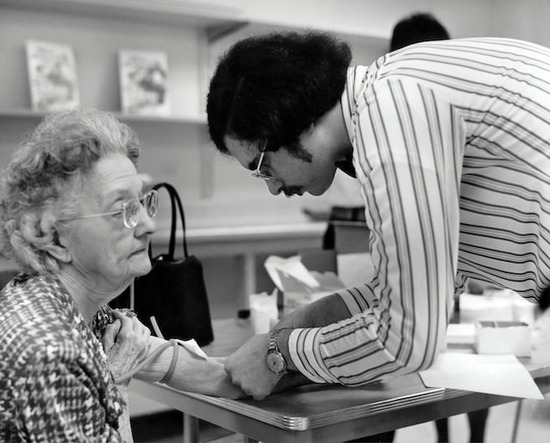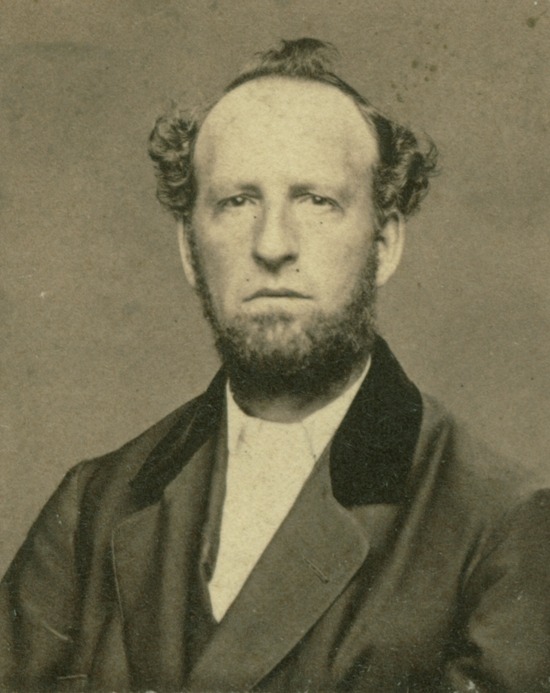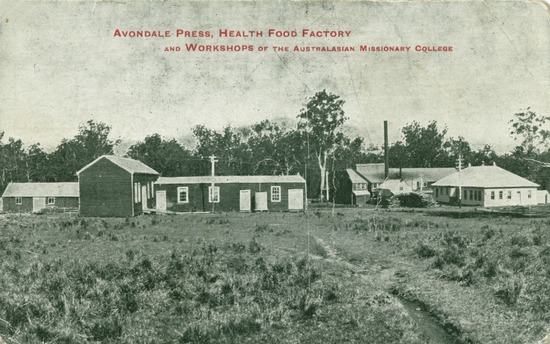How Ellen White’s Teachings Can Improve Your Health
Healthcare in the nineteenth century was said to leave “more disease than it took away” with its use of bloodletting and “medicines” like mercury and arsenic.1 As people questioned these methods, new approaches popped up. But which ones were reliable? Among this mix of ideas, the Seventh-day Adventist Church had a voice of clarity with the inspired counsel of Ellen White. Her simple teachings on health were revolutionary in how they cut through the varying opinions, and they have since stood the tests of time and science. Many of these teachings came from visions she received from the Holy Spirit, revealing ways to foster a healthy, balanced community. To get a better understanding of the visions she had and how the information was put to the test, we’ll answer the following questions:
What were Ellen White’s health visions about?
Ellen White had four visions on the subject of health—in 1848, 1854, 1863, and 1865. Through them, the Holy Spirit showed her the impact of physical health on spiritual and mental well-being. The visions also revealed important (but often neglected) lifestyle principles and called Jesus’ followers to reflect His healing ministry through health education and medical work.
Adventists refer to this counsel as the “health message” or “the laws of health.”
The context of the visions
Ellen White received her visions when society-at-large was confused about health and medicine. Her messages—revolutionary at the time—helped Adventists break through this confusion.
Here’s some background.
In the early 1800s, medical practices had little scientific backing and often did more harm than good. Many doctors believed that they could heal sickness by breaking the body down and then building it back up. To do so, they resorted to bloodletting, purging, or treating various ailments with mercury, arsenic, opium, or calomel.2
They even thought tobacco would heal the lungs!3
Health was a struggle in the Seventh-day Adventist Church too, even among its leaders. Some of them drank alcohol and smoked tobacco.4 One leader, J. N. Andrews, described his diet: pork in various forms, sausage, donuts, biscuits, and old cheese.5
Within this context, Ellen White’s counsel seemed crazy. Turns out, it was just far ahead of its time.
The purpose of the visions6
Ellen White’s visions offer a wholistic approach to health and frame it within the mission of the Adventist Church.
They show that God wants to heal us physically, mentally, and spiritually so we can live our best lives and serve Him most effectively. Health is one way that the Adventist Church can fulfill its mission to “give glory” to God (Revelation 14:7; 1 Corinthians 10:31).
And through the health message, we aim to reflect Jesus’ work of relieving suffering and sharing spiritual truth.
What was each vision like?
Ellen White received four visions that addressed health topics. We’ll touch on the main points of each.
First health vision (1848)7
In Ellen White’s first vision about health, the Holy Spirit showed her the dangers of tobacco, as well as the negative effects caffeine can produce.
She warned about tobacco’s harmful effects on mental and spiritual health, specifically mentioning its addictive nature. It could even be something that could stand in the way of someone’s relationship with God.
Second health vision (1854)
The second vision addressed basic hygiene and keeping the home clean. It also brought out the benefits of a simple diet, as opposed to “rich” food (such as cakes, pies, pastries, spicy and highly seasoned foods, cheese, butter, and condiments).
Ellen White’s record of the vision was published in a manuscript.
Third health vision (1863)

Courtesy of the Ellen G. White Estate, Inc.
Ellen White’s most comprehensive health reform vision took place in Otsego, MI, and lasted 45 minutes. It emphasized the link between health and spiritual life, while also covering principles for healthful living.
God gave this message to her at a time when her husband James White was depressed, sick, and bordering on burnout.8 About two-thirds of it was counsel for the two of them.
Counsel such as:
“I saw that now we should take special care of the health God has given us, for our work was not yet done.
“Especially should we turn our attention to our health, and take time to devote to our health that we may in a degree recover from the effects of overdoing and overtaxing the mind.”9
The rest of the vision dealt with general health principles, which she recorded in chapter 39 of Spiritual Gifts, volume 4a.
Here’s a brief overview of them:
- The connection of health to the spiritual life
- The link between lifestyle and disease
- The negative effects of alcohol, tobacco, stimulating drinks, and rich food
- Temperance (self-control) in every aspect of life—eating, drinking, and working
- A simple vegetarian diet
- Avoidance of unclean meat, such as pork, per Leviticus 11
- Cleanliness and hygiene
- The healing power of exercise, pure water, fresh air, and sunlight
- The dangers of recreational drugs (particularly those used in Ellen White’s time)
- The power of the mind and the importance of a positive attitude
- The role of health reform in the Adventist mission
Fourth health vision (1865)
Ellen White’s fourth and final health vision was a call from God for Adventists to start their own center for promoting health principles and helping sick people recover.
But why did Adventists need their own health center?
James and Ellen White had spent time at a health center in Dansville, New York, after James had a stroke. This center promoted many concepts that Adventists believed in: a vegetarian diet, abstinence from alcohol and tobacco, and the use of hydrotherapy (treatments with water).
But Ellen White was concerned about some aspects of the program, particularly the disconnect between religious faith and healing.
Adventists needed a place where they could care for the sick and teach health reform in the context of their beliefs.10 This led to the establishment of the Western Health Reform Institute (later known as Battle Creek Sanitarium).
What books resulted from Ellen White’s visions about health?
As Ellen White received insight on various topics of health, she began writing them down in articles and pamphlets so they could be shared with others. Eventually, those small pieces became larger books. Here are the original writings based on her health visions:
- An Appeal to Mothers (1864)
- “Health,” Spiritual Gifts, volume 4a (1864)
- “Disease and Its Causes” in the booklet Health, or How to Live (1865)
- Christian Temperance and Bible Hygiene (1890)
In 1905, she compiled her teachings on health and wellness into the expansive book, The Ministry of Healing.
And in 1897, a doctor named David Paulson compiled a concise overview of her health teachings in a book called, Healthful Living.
Other compilations—put together by the trustees of the Ellen G. White Estate after her death—are:
- Counsels on Health (1923)
- Medical Ministry (1932)
- Counsels on Diet and Foods (1938)
- Temperance (1949)
What can we learn from Ellen White’s visions about health?11
Ellen White’s visions provide practical principles for healthful living, which Adventists refer to as the health message. We continue to follow these principles with even greater confidence because of how science backs them today.
Let’s look at some key principles:
Whole-person health
In her visions, Ellen White saw the relationship between physical, mental, and spiritual health. The way we care for our bodies affects our minds and our relationship with God.
“The relation which exists between the mind and the body is very intimate. When one is affected, the other sympathizes. The condition of the mind affects the health of the physical system.”12
A plant-based diet and avoidance of pork
When it comes to diet, “grains, fruits, nuts, and vegetables constitute the diet chosen for us by our Creator. These foods, prepared in as simple and natural a manner as possible, are the most healthful and nourishing.”13
Science bears this out by showing how a plant-based diet helps prevent chronic diseases—cancer, diabetes, and more.14
Notice how physician and author Dr. Greger responded when asked what a diet protective against disease looks like:
“It is a diet that minimizes the intake of meat, eggs, dairy, and junk and maximizes a diet of fruit, vegetables, whole grains, legumes or beans, peas, chickpeas, lentils, nuts, seeds, herbs, spices, and mushrooms—basically real food that grows out of the ground not in a factory. Those are our healthiest choices.”
Sounds similar to what Ellen White wrote, doesn’t it?
He points out the modern research on the dangers of pork too:
“So, how contaminated is the U.S. pork supply? Consumers Union tested nearly 200 pork samples from cities across the country, and found more than two-thirds contaminated with Yersinia—90% of which were resistant to one or more antibiotics.”
And to think that Ellen White wrote this over 150 years ago:
“Pork, although one of the most common articles of diet, is one of the most injurious. God did not prohibit…eating swine’s flesh merely to show His authority, but because it was not a proper article of food for man.”15
Harmful substances and activities
Ellen White’s warnings against harmful substances and activities are still relevant today.
These include:
- Smoking/tobacco: “Tobacco is a poison of the most deceitful and malignant kind, having an exciting, then a paralyzing, influence upon the nerves of the body. It is all the more dangerous because its effects upon the system are so slow, and at first scarcely perceivable.”16
- Alcohol: “The effect of intoxicating liquors is to weaken the body, confuse the mind, and debase the morals.”17
- Overwork: “We should practice temperance in our labor. It is not our duty to place ourselves where we shall be overworked. Some may at times be placed where this is necessary, but it should be the exception, not the rule.”18
- Overeating: “There is evil in overeating of even healthful food… If we overeat, the brain power is taxed to take care of a large quantity of food that the system does not demand, the mind is clouded, and the perceptions enfeebled.19
- Poor hygiene: “Strict habits of cleanliness should be observed. Many, while well, will not take the trouble to keep in a healthy condition. They neglect personal cleanliness, and are not careful to keep their clothing pure. Impurities are constantly and imperceptibly passing from the body, through the pores, and if the surface of the skin is not kept in a healthy condition, the system is burdened with impure matter.”20
Natural remedies
Ellen White wrote, “Pure air, sunlight, abstemiousness [self-control], rest, exercise, proper diet, the use of water, trust in divine power—these are the true remedies.”21
Though she didn’t discount medical interventions, she taught that we need to get to the root of sickness—often lifestyle habits—instead of merely fighting symptoms. Today, the medical community recognizes this link between lifestyle and disease.
Dr. Josh Axe, a well-known doctor of natural medicine, chiropractor, and clinical nutritionist, points out this exact same principle:
“I think the single most important question to ask your doctor is, ‘What is the root cause of my condition?’”
To learn more about these natural remedies, see our article on the NEWSTART acronym for healthful living.
A positive attitude
Because of the strong mind-body connection, attitude plays an important role in healing. This is why God gave the following counsel to James and Ellen White:
“We should encourage a cheerful, hopeful, peaceful frame of mind, for our health depends upon our doing this.”
We now know that a positive mindset boosts recovery from injuries or illness.
Mission to share the health message

Courtesy of the Ellen G. White Estate, Inc.
Health ministry is an important emphasis in the Adventist Church because of Ellen White’s counsels. In every way, Adventists want “to make the world better for their having lived in it.”22
How?
One way is by connecting the Bible’s principles with healing, like Jesus did. Every member can be a medical missionary by understanding the body and learning how to use the natural remedies.23
Ellen White also urged the church to establish:
- Health food stores and manufacturers
- Vegetarian restaurants
- Health centers
- Health training facilities
- Clinics
Through these “centers of influence,” she envisioned doctors, pastors, and church members working together to provide health education and healing.24
Is following the health message a way of earning salvation?
No, following the health message is not about earning salvation or favor with God. Instead, Adventists see healthful living as a way to honor God and best fulfill their mission in this world.
Convictions about health are personal. We shouldn’t judge someone’s character or relationship with God based on their health.
And even Ellen White did not set herself as a standard for others. She encouraged people to prayerfully evaluate God’s Word and health counsel to know how they can be the best stewards of their bodies.
Want to put these health principles to the test?
God cares that we are in good health. That’s why He used Ellen White’s counsels to direct people back to a simple, biblical philosophy of health.
And today, the science agrees, giving us greater confidence in what God says!
Adventists value this health message because it not only benefits our personal lives but also draws us closer to Jesus and shapes our mission to tell people about Him.
And God can use it to shape your life, too! Why not give Ellen White’s teachings a try and see how it might benefit your own health.
Related Articles
- Bigelow, Jacob, M.D., Brief Exposition of Rational Medicine (Philips, Samson, and Co., Boston, 1858), pp. 62–63. [↵]
- Robinson, Doris, The Story of Our Health Message (Southern Publishing Association, Nashville, TN, 1965), pp. 17–22. [↵]
- Douglass, Herbert, Messenger of the Lord (Nampa, Idaho, Pacific Press, 1998), p. 289. [↵]
- Robinson, pp. 63–64. [↵]
- Ibid., p. 26. [↵]
- “Health Reform,” Fortin and Moon, The Ellen G. White Encyclopedia (Review and Herald, Hagerstown, MD, 2014). [↵]
- Robinson, pp. 65–66. [↵]
- Ibid., p. 76. [↵]
- White, Ellen, Manuscript 1, 1863. [↵]
- Purpose and Objectives of Seventh-day Adventist Institutions, p. 64–69. [↵]
- Levterov, Theodore, “The Ministry of Healing,” Encyclopedia of Seventh-day Adventists, Jan. 29, 2020. [↵]
- Counsels on Health, p. 28 [↵]
- White, Ellen, The Ministry of Healing (Pacific Press, Mountain View, CA, 1905), p. 296. [↵]
- Miles et. al., “Plasma, Urine, and Adipose Tissue Biomarkers of Dietary Intake Differ Between Vegetarian and Non-Vegetarian Diet Groups in the Adventist Health Study-2,” The Journal of Nutrition, vol. 149(4), April 2019, pp. 667–675. [↵]
- White, Ellen, Counsels on Diet and Foods (Review and Herald Publishing Association, Washington, D.C., 1938), p. 392. [↵]
- White, Ellen, Spiritual Gifts, vol. 4a (Seventh-day Adventist Publishing Association, Battle Creek, MI, 1864), p. 128. [↵]
- White, Ellen, Temperance (Pacific Press, Mountain View, CA, 1949), p. 268. [↵]
- Ibid., p. 139. [↵]
- White, Ellen, Healthful Living (Medical Missionary Board, Battle Creek, MI, 1897), p. 88. [↵]
- Ibid., p. 143. [↵]
- White, The Ministry of Healing, p. 27. [↵]
- Ibid., p. 398. [↵]
- White, Ellen, Testimonies for the Church, vol. 7 (Pacific Press, Mountain View, CA, 1902), p. 62. [↵]
- White, Ellen, Counsels on Health (Pacific Press, Mountain View, CA, 1923), p. 493. [↵]
Questions about Adventists? Ask here!
Find answers to your questions about Seventh-day Adventists
More Answers
The Health Benefits of Fresh Air You Should Know About
The Health Benefits of Fresh Air You Should Know About“When you can’t breathe, nothing else matters,” the American Lung Association tells us. And while that’s true, the kind of air you’re breathing will determine the health benefits you experience. Breathing fresh...
What Do Seventh-day Adventists Choose to Eat?
What Do Seventh-day Adventists Choose to Eat?Food blogs overwhelm the internet; food fads are all the rage; and copycat and healthy versions of food are the subject of many a get-together. Eating—and eating the best way—is a big deal. And everybody has a different...
10 Incredible Ways Sunlight Can Improve Your Health
10 Incredible Ways Sunlight Can Improve Your HealthAre you concerned about sunlight’s negative effects? You might be the one who lathers on the sunscreen and covers up when you go outside. Or maybe you avoid being outside as much as possible. You might be surprised,...
Why Is Water So Important?
Why Is Water So Important?We all know that water is a substance we can’t live without. It quenches our thirst and keeps us hydrated on the inside. And it’s necessary for hygiene and cleansing on the outside too. But did you know that the cleansing properties of water...
Ellen White’s Writings and the Adventist Health Message
Seventh-day Adventists are known for their emphasis on healthy living. And Ellen G. White was a significant influence in the development of this priority and practice among Adventists.
Health Clinics
Ellen White and Adventist Healthcare—Ahead of Their Time Medical care in the mid-1800s was primitive, to say the least. Basic concepts we take for granted—such as proper handwashing or recognizing the dangers of bloodletting—were nonexistent. And doctors often had...
What Did Ellen White Teach about Vegetarianism?
What Did Ellen White Teach about Vegetarianism?One thing you might have heard about Seventh-day Adventists is their emphasis on a vegetarian lifestyle. If you’re wondering why that is, it goes back to our church’s humble beginnings: As Adventists studied the Bible,...
Change Your Perspective on Life with These 5 Mindsets
5 Biblical Mindsets to Change Your Life for the Better Sometimes, life is just plain hard. There’s no way around it. So would thinking about things differently really change anything? Our perspective on life, and everything it throws at us, affects more than we’re...
Bible Promises for When You’re Worried or Fearful
Bible Promises for When You’re Worried or Fearful The Bible is full of beautiful promises that can comfort us in a variety of situations. They can give us hope when we are hopeless, make us feel grateful for God’s love, and comfort us when we’re grieving or suffering....
12 Practical Ways to Overcome Worry
12 Practical Ways to Overcome Worry DISCLAIMER: This content is for informational purposes only. It does not constitute any professional medical advice and is not intended as a substitute for professional mental health therapy. It’s easy to get stuck in a cycle of...
How the Bible Talks About Worry, Fear, and Anxiety
How the Bible Talks About Worry, Fear, and Anxiety Worry and fear are the ingredients of anxiety. It’s easy to see how the world isn’t perfect—and the anticipation of a bad event or experience (that may or may not even happen) can end up draining the peace and...
How to Calm Anxious Thoughts, Using the Bible
How to Calm Anxious Thoughts, Using the Bible You were expecting a phone call from your daughter half an hour ago, and she still hasn’t called. She’s also not answering your calls. You feel your heart thumping as your thoughts race: What if she’s been in a car...
What You Should Know About the Adventist Health Studies
What You Should Know About the Adventist Health StudiesYou may have heard that Seventh-day Adventists care about health. But what you may not know is that Adventists have been the subjects of long-term research into lifestyle and health. Since 1958, researchers from...
Benefits of Sunlight
Yes, There Are Health Benefits of SunlightDespite the bad reputation it’s gotten, sunlight is generally associated with positivity, as shown by songs like “You Are My Sunshine,” or phrases that refer to delightful people as having a “sunny disposition.” There’s a...
Why Your Body Needs Rest for Optimal Health
Why Your Body Needs Rest for Optimal HealthStruggling to think straight? Wondering why you can’t remember that important tidbit you heard earlier today? Feeling like your emotions are about to explode? These are just some of the symptoms that can reveal your need for...
The Seventh-day Adventist Diet: One of Our Key Longevity Secrets
The Seventh-day Adventist Diet: One of Our Key Longevity SecretsOats, avocados, lentils, tofu—probably not what you first think of in a standard American diet. But if you show up at the home of an Adventist, chances are you may be served one of these staples. Out of a...
Why You Need Fresh Air
Why You Need Fresh Air“When you can’t breathe, nothing else matters,” the American Lung Association tells us. We couldn’t agree more! Breathing in clean air is an essential part of caring for our bodies, which God has given us. Together with other health principles,...
Sabbath Meal
Everything You Need to Know About Sabbath MealsFor Seventh-day Adventists, sharing a Sabbath meal with friends and family is one of the most special and memorable parts of the Sabbath. That’s why we want to share with you all about Sabbath meals and why they’re such a...
Adventists and Healthy Living
Adventists and Healthy LivingWhat’s the Adventist “Health Message” All About? One thing Seventh-day Adventists are known for is their emphasis on living healthy lives. Since our bodies are living temples of the Holy Spirit (1 Corinthians 6:19, 20), we strive to stay...
Water’s Importance—Physical Benefits and Spiritual Applications
Water’s Importance—Physical Benefits and Spiritual Applications We all know that water is a substance we can’t live without. Not only does it quench our thirst and keep us hydrated from the inside, but it’s necessary for hygiene and cleansing on the outside as well....
How Important is a “Day of Rest?”
How Important is a “Day of Rest?” Why God Created a Day for Downtime by Martin Casper Do you ever experience the feeling of complete overload? Do you feel like the only way you can get ahead is by slamming it 24/7? I hear these types of comments more and more...
7 Reasons Why a Day of Rest is Important
7 Reasons Why a Day of Rest is ImportantWe live in a fast-paced world. It seems as if success is measured in how much you can do in a short amount of time. (Extra points for the service or product that is available 24/7). The idea that we will be more successful if we...
How do Adventists choose what to eat?
How do Adventists choose what to eat?Every day, parents go through the ritual of getting their kids to eat what is healthy and good while trying to steer them away from what can hinder the growth of their developing bodies. Nutritionists work with their clients to...
How Can I Have a Better Marriage?
Is it possible to have a happy marriage?
How do Adventists make movie and music choices?
How do Adventists make movie and music choices?Cinema has come a long way since the first clips of motion pictures came to light in 1878. As the decades rolled on, film and music producers have created rivers of movies and albums for the masses. Today, watching movies...
Why are many Adventists Vegetarian?
Why are many Adventists Vegetarian?The diet intended for man is outlined in Genesis 1:29, “And God said, ‘See, I have given you every herb that yields seed which is on the face of all the earth, and every tree whose fruit yields seed; to you it shall be for food.’”...
Didn’t find your answer? Ask us!
We understand your concern of having questions but not knowing who to ask—we’ve felt it ourselves. When you’re ready to learn more about Adventists, send us a question! We know a thing or two about Adventists.






















